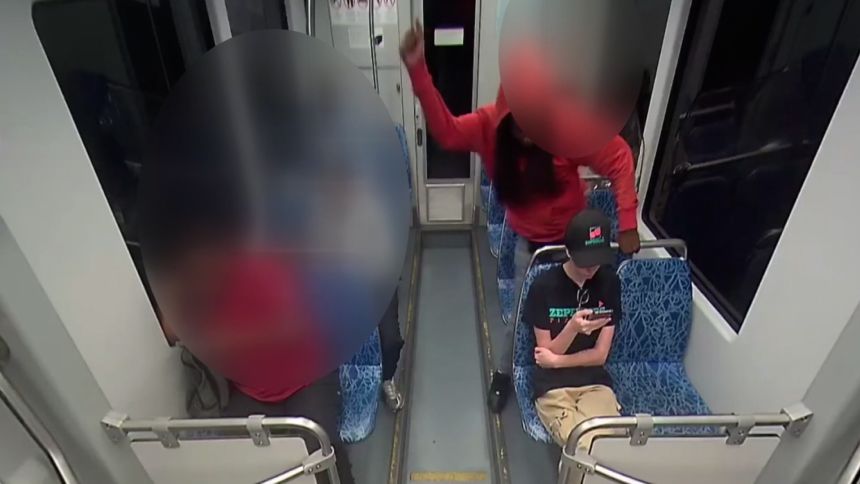President Trump Honors Iryna Zarutska, the Ukrainian Refugee Fatally Stabbed on Charlotte Light Rail, Calling Out Evil and Vowing Safety
I’ve felt a knot in my chest since hearing the news of Iryna Zarutska. She was just 23, a Ukrainian refugee who escaped the war in her homeland in search of a new beginning. I think of what courage it must take to flee conflict for hope, and then imagine that same hope shattered so abruptly on a Charlotte train. President Trump’s words about her struck me — not just for their bluntness, but for the raw emotion behind them.
He said, “I give my love and hope to the family of the young woman who was stabbed—Iryna Zarutska—by a madman… a lunatic… while she’s just sitting there.” I heard the pain in those words, the heart that sees tragedy and tells us, “We cannot let this stand as normal.” He named it for what it was: evil. “There are evil people,” he said. “We have to be able to handle that. If we don’t handle that, we don’t have a country.”
He’s right that sometimes our grief stirs something bigger. Today, we’re not just mourning Iryna’s death, we’re questioning how a woman seeking safety could become the target of such senseless violence. Trump’s message isn’t political spin—it’s empathy and alarm wrapped together, calling for accountability without sugarcoating it.

What happened to Iryna is chilling in its simplicity and cruelty. A train ride, late at night, no security in sight. Surveillance video shows her boarding, wearing her work uniform from the pizzeria where she was proud to work. A man sits behind her, and minutes later, he stabs her multiple times in the neck. She slumps forward. Passengers freeze before rushing to her aid, but she dies on the spot. The suspect, already charged with first-degree murder, is said to have a long criminal record and mental health issues. Even so, Iryna was simply trying to live, to build something after war—not to be taken by violence so abruptly.
Trump didn’t just share the horror of the event—he widened the lens with a broader, painful question: If our society can’t stand up to this kind of violence, are we losing grip on what it means to protect each other? He described that concept as foundational to keeping a country together. It may have come from a crowded political backdrop, but it resonated. It felt like someone placing a moral hand on mine and saying, “We have to fight this.”
In Charlotte, Mayor Vi Lyles and others have spoken about trauma, mental health, and public safety. They reminded us that this is a city grappling with grief and the need for healing. Trump’s words didn’t erase that, but he offered a message many said was missing—one that acknowledged the hate they saw plus the real necessity of confronting it head-on. He even said that when horrible things happen, “you have to take horrible actions,” referencing outdated bail systems that let dangerous people back into society too easily.
What touched me was how his words may speak to people who feel ignored—refugees, victims, families whose pain doesn’t always make headlines. Trump naming Iryna and calling out evil helps some feel seen. It doesn’t undo the horror, but it mirrors their outrage and demands that it not go unanswered.

I know some will debate whether his words are enough or whether they pave the way for the right kind of action. But grief demands response, and empathy invites accountability. Iryna deserved more than to vanish from sight—as a refugee, as a human with hopes, as a life interrupted. President Trump naming her, honoring her by saying her life mattered, that matter.
Her death reminds us how fragile safety can be. A country is more than its laws—it’s how it responds when evil visits its rails, its neighborhoods, its people. Trump’s words were simple, even sharp. But they gave space for sorrow, truth, and the hope that collectively, we refuse to let something like this become routine.


